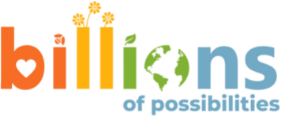Initial Assessment: What Are Your Acorns?

My intention for you in taking this course is that you unf#ck any personal or interpersonal issues that are holding you back from being the leader you know you’re here to be.
What if you had a magic wand and could instantly solve the nagging work relationship issues that keep you up at night? What would you change?
I wish I hadn’t overpromised to that funder.
I resent my supervisor or board chair for micromanaging me.
This is the third micro-aggression I’ve experienced this month.
I believe I am underpaid and undervalued by my organization.
My boss is late for every single meeting.
I sense that one of my peers is undermining me.
I am concerned about the job performance of someone I supervise.
If something doesn’t change, I am going to quit.
Maybe you’re happy as a clam – good for you! If that’s the case, I want you to tune into potentials that you haven’t yet realized.
I’ve realized that I’m not working in my genius.
We could be having way more impact if only…
What Toxic Organizational Dynamics Are You Experiencing?
Module Downloads
Worksheets: Blame & Criticism, Overwork & Overwhelm, Indecision, & Micromanagement
Please download and complete the worksheets as a reference as you work through all the “Facing” Modules in the course.
Some of the questions won’t make sense right now. They will once you do the modules.
No one will ever ask you to share this worksheet – it is private for you.
The worksheet will help you to take this material into more depth, or you could start right here with this interactive quiz to see which patterns might be more pressing for you.
What Oppressive Societal Dynamics Are you Experiencing?
Module Downloads
Worksheets: Fully Facing Interpersonal & Organizational Toxicity and Tema Okun’s White Supremacy Culture
Sometimes our leadership challenges aren’t simply personal or interpersonal; they have deeper institutional roots that are worth digging into a bit. This may or may not be the case for you, but we would be remiss were we not to tee that up as a possibility.
I first encountered Tema Okun’s White Supremacy Culture article when I was working with the National Equity Project for the Raikes Foundation. At the time, Joe McCannon and I had just published a piece in the Stanford Social Innovation Review about what it feels like to be on a team that is thriving while implementing large-scale change. I was blown away by the commonalities in what we were seeing, but mostly humbled and grateful to Tema and her colleagues for connecting the more surface level dynamics like perfectionism and fear of open conflict – all the way to their roots in white supremacy and racism.
So if you choose to only read one of these two articles, read Tema’s! We’ve added Tema’s article to the download section and cannot recommend it highly enough.
Maybe you thought the problem was specific to you and one other person. This is an invitation to get curious about how many it’s deeper than that. And it also gives you words and language to pinpoint what exactly it is, if that’s the case.
Please give the handout a review and see if any of the aspects of white dominant culture are actually underneath your initial take on what your issue might be. If you think that’s the case, jot down which aspect of white dominant culture is related to your issue. If it’s not the case, that’s ok, too. It’s worth taking a couple of minutes to see if the personal “acorns” you’re facing are related to the organizational and if those are grounded in systemic and structural oppression.
Revisit Your Acorns
Module Downloads
Worksheets: What Are Your Acorns?
So, we’ve covered a lot of ground in a short period of time, and explored multiple ways of exploring what precisely it is that’s wanting your attention as a powerful leader of social change.
So, here we are, at the end of this module. You made a first pass at what’s keeping you up at night, professional and/or personal. You’ve considered some of the most prevalent manifestations of organizational toxicity (blame/criticism, overwork/overwhelm, indecision, and micromanagement), and you’ve expanded your thinking to include some of the oppressive dynamics that underlie all the systems and structures that we’re working within (and wanting to change!)
Now, we invite you to make one more pass at those acorns. Same worksheet. Different perspective. Now, knowing all you know, considering all you’ve considered, what acorns do you want to use this course to face into and transform from something small, and possibly problematic, to something mighty and awesome (like an oak tree).
Reminder that this is confidential and we will never ask you to share this. So my unsolicited advice is to swing for the fences. Go for it. Name it. Write it down. For inspiration, you can see what some of the leaders who took this course wrote as their acorns below.
James Baldwin famously said, “Not everything that is faced can be changed, but nothing can be changed until it is faced.”
Then, take a minute to celebrate this victory. You’ve done it. You’ve faced into your challenge. That’s enough for now. High-five and onward!!
Module Summary
Throughout this module, we have explored various aspects of being a powerful leader of social change. You have considered what keeps you up at night both professionally and personally. We have also examined different manifestations of organizational toxicity, such as blame/criticism, overwork/overwhelm, indecision, and micromanagement. Additionally, we have expanded our understanding to include the oppressive dynamics that underlie the systems and structures we aim to change.
Now it’s time to revisit these concerns and transform them into something larger and more impactful, like an oak tree. Take a moment to reflect on what acorns you want to address and transform with the help of this course. Write them down on the worksheet provided, knowing that your input is confidential and will not be shared. Don’t be afraid to aim high and name your challenges.
Remember the words of James Baldwin: “Not everything that is faced can be changed, but nothing can be changed until it is faced.” This is your opportunity to face your challenges head-on, knowing that by doing so, you are one step closer to making a difference.
Celebrate this victory of acknowledging and facing your challenges. Give yourself a well-deserved high-five and continue onward in your journey as a leader of social change.
